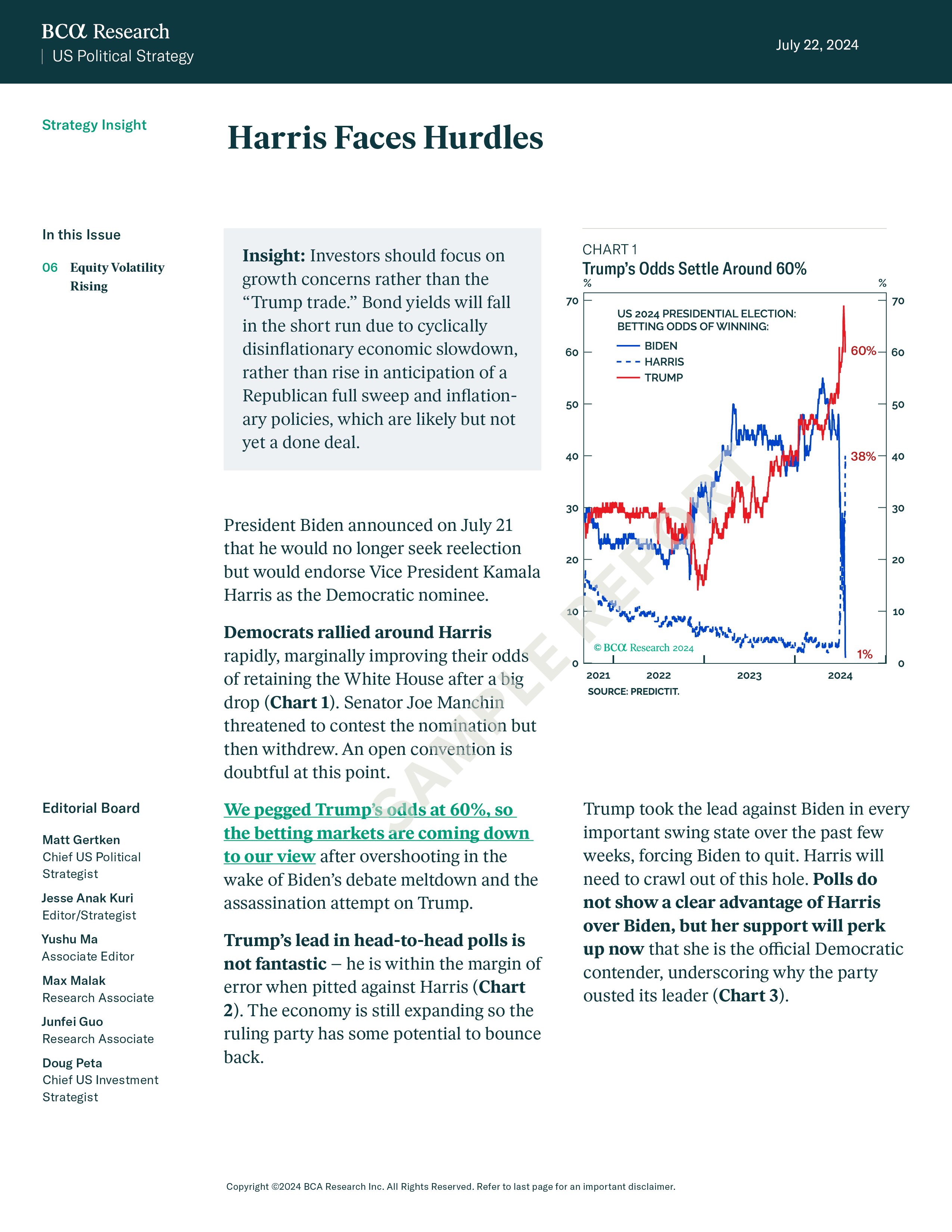Betting markets can seem confusing at first glance. They offer many options and opportunities.
But how do you make sense of it all? Understanding betting markets is key to making informed decisions. Whether you’re new or experienced, grasping the basics can help. Betting markets are where bettors place their bets. They cover sports, politics, and more.
Each market has its own set of odds and rules. Knowing these can improve your chances. This guide will break down different betting markets. We’ll look at how they work and what to consider. By the end, you’ll have a clearer view. Ready to dive in? Let’s explore the world of betting markets together.

Credit: www.thestar.com
Introduction To Betting Markets
Understanding betting markets is crucial for anyone interested in gambling. These markets form the backbone of the betting industry. They offer a variety of options for placing bets. This section will break down the basics of betting markets.
What Are Betting Markets?
Betting markets are platforms where people place bets. These bets can be on sports, events, or other outcomes. Each market focuses on a specific type of bet. For example, sports betting markets cover games like football or basketball. There are also markets for political events, horse racing, and reality TV shows.
In a betting market, bookmakers set the odds. Odds show the probability of an outcome. They also show how much a bettor can win. Bettors place their money based on these odds. The odds change based on various factors. These can include team performance, weather, and player injuries.
Importance In The Gambling Industry
Betting markets play a key role in the gambling industry. They provide structure and fairness. Without these markets, betting would be chaotic. Bettors would not know how much they could win. Bookmakers would find it hard to set fair odds.
Betting markets also help in managing risk. They balance the money placed on different outcomes. This ensures that bookmakers can pay out winnings. It keeps the industry stable.
The markets also attract a wide range of bettors. Some people bet for fun. Others see it as an investment. A well-structured market appeals to all. It offers different types of bets. This variety keeps the industry dynamic and exciting.
Types Of Betting Markets
Betting markets offer a variety of options to cater to different interests. From sports to finance and even politics, there is something for everyone. Understanding the types of betting markets can help you make informed decisions and enjoy the betting experience more.
Sports Betting
Sports betting is one of the most popular forms of betting markets. It involves placing wagers on the outcome of sports events. Common sports include football, basketball, tennis, and horse racing. Sports betting markets offer various bet types, such as:
- Moneyline bets: Wagering on which team or player will win.
- Point spread bets: Betting on the margin of victory.
- Over/Under bets: Betting on the total points scored in a game.
- Prop bets: Specific outcomes within a game, like who scores first.
Financial Betting
Financial betting involves predicting the movements of financial markets. This type of betting focuses on assets like stocks, currencies, and commodities. Financial betting markets include:
- Spread betting: Betting on the direction and extent of market movements.
- Binary options: Betting on whether an asset will be above or below a certain price at a specific time.
- CFDs (Contracts for Difference): Speculating on the price movement without owning the asset.
Financial betting requires understanding market trends and analyzing financial data.
Political Betting
Political betting is about wagering on political events and outcomes. It includes elections, referendums, and political decisions. Some common political betting markets are:
- Election outcomes: Betting on who will win an election.
- Party performance: Predicting the number of seats a party will win.
- Referendum results: Betting on the outcome of a public vote.
- Political events: Speculating on events like leadership changes.
Political betting requires staying informed about current events and understanding political trends.
Key Players In Betting Markets
Understanding key players in betting markets is crucial for anyone interested in betting. These players shape the dynamics and outcomes of bets. Let’s explore the roles of bookmakers, punters, and market analysts in this fascinating world.
Bookmakers
Bookmakers, also known as bookies, set the odds for various events. They analyze data and trends to determine the likelihood of different outcomes. This helps them set fair odds. Their main goal is to balance their books. They want to ensure they make a profit, regardless of the event’s outcome. Bookmakers use advanced algorithms and models to stay ahead of the game. They constantly adjust the odds based on new information and betting patterns.
Punters
Punters are the individuals who place bets. They study form guides, statistics, and expert opinions. Their aim is to beat the bookmakers. Successful punters often have a deep understanding of the sport or event they are betting on. They also manage their bankroll carefully. This ensures they can continue betting over the long term. Some punters rely on intuition, while others use detailed analysis and strategies. They are always on the lookout for value bets. These are bets where the odds are higher than the actual probability of the event happening.
Market Analysts
Market analysts play a vital role in betting markets. They provide insights and predictions based on data analysis. They study past performances, trends, and external factors. This helps them forecast future outcomes. Their work is crucial for both bookmakers and punters. Bookmakers use their insights to set accurate odds. Punters use their predictions to make informed bets. Market analysts often work for betting companies or as independent consultants. They bring a scientific approach to betting, making it more predictable and less reliant on luck.
Understanding Odds
Understanding odds is key for anyone interested in betting markets. Odds tell you how likely an event is to happen. They also show how much you can win if you bet on that event. Different countries and betting platforms use different types of odds. The three most common types are decimal odds, fractional odds, and moneyline odds.
Decimal Odds
Decimal odds are popular in Europe, Canada, and Australia. They are easy to understand. The number shows how much you win for every dollar you bet. For example, if the odds are 2.50, you win $2.50 for every $1 bet. This includes your original stake. So, a $10 bet at 2.50 odds returns $25.
Fractional Odds
Fractional odds are common in the UK and Ireland. They show your profit relative to your stake. For instance, odds of 5/1 mean you win $5 for every $1 bet. So, a $10 bet at 5/1 odds returns $60. This includes your original $10 stake plus $50 profit. Fractional odds can also appear as 1/5, which means you win $1 for every $5 bet.
Moneyline Odds
Moneyline odds are popular in the United States. They can be positive or negative. Positive odds show how much you win on a $100 bet. For example, +200 means you win $200 on a $100 bet. Negative odds show how much you need to bet to win $100. For instance, -150 means you need to bet $150 to win $100.
Understanding these different types of odds helps you make better betting decisions. Each type has its own way of showing risk and reward. Knowing how to read them is a valuable skill for anyone in the betting market.
Strategies For Success
Betting markets can be complex, but they also hold great opportunities. Understanding the strategies for success is key. Different approaches can help you turn the odds in your favor. Below are some effective strategies to consider.
Value Betting
Value betting involves identifying bets where the odds are in your favor. This means the bookmaker has underestimated the probability of an outcome. You place bets on these undervalued odds. Over time, this can increase your chances of winning. It’s about spotting the value and making the most of it.
Arbitrage Betting
Arbitrage betting is a low-risk strategy. It involves placing bets on all possible outcomes of an event. You use different bookmakers to find the best odds. This guarantees a profit regardless of the outcome. It’s a way to beat the system by exploiting price differences.
Matched Betting
Matched betting uses free bets and promotions offered by bookmakers. You place a bet on an outcome and then lay the same bet on a betting exchange. This cancels out the risk. You can make a profit from the free bet. It’s a popular strategy among bettors looking for a consistent return.
Analyzing Market Trends
Analyzing market trends is crucial for successful betting. Understanding patterns and shifts can enhance your decision-making. This section explores key aspects of market trends, diving into data analysis, predictive models, and market sentiment.
Data Analysis
Data analysis involves examining historical data. It helps identify patterns. Bettors can spot recurring trends. This information can guide future bets. Analyzing data reduces the guesswork. It adds a layer of certainty to your decisions.
Predictive Models
Predictive models use statistics to forecast outcomes. They consider various factors. These models can predict likely results. Bettors can rely on these models for informed choices. Predictive models offer a scientific approach to betting.
Market Sentiment
Market sentiment reflects public opinion. It shows what the majority believe. Understanding sentiment can be powerful. Sometimes, following the crowd pays off. Other times, going against it is wise. Bettors must assess sentiment carefully.
Risk Management
Risk management is crucial in betting markets. It helps in controlling losses and protecting your bankroll. Here, we will break down three essential strategies for effective risk management.
Setting Limits
Setting limits is the first step in managing risk. Decide on a maximum amount to bet. Stick to this limit, no matter what. This helps prevent chasing losses and making impulsive decisions.
Diversifying Bets
Diversifying bets can reduce risk. Spread your bets across different events or markets. This way, one loss won’t ruin your entire bankroll. It’s like not putting all your eggs in one basket.
Using Betting Banks
Using betting banks is a smart strategy. Set aside a specific amount as your betting bank. This is your total budget for betting. Only use money from this bank. This ensures you don’t spend more than you can afford.

Credit: www.bcaresearch.com
Technological Tools
Technological tools have significantly transformed the betting landscape. These tools offer bettors improved ways to analyze and place bets. The convenience and efficiency provided by these tools cannot be overstated. Let’s explore some key technological tools in the betting industry.
Betting Software
Betting software has become a vital part of modern betting. This software helps bettors make informed decisions. It provides real-time data and statistics. Users can track odds, manage bets, and analyze results. This makes the betting process more strategic and less reliant on guesswork.
Mobile Apps
Mobile apps have made betting more accessible. Bettors can place bets anytime, anywhere. These apps offer user-friendly interfaces and a wide range of features. Push notifications keep users updated on their bets and market changes. This level of convenience was unimaginable a few years ago.
Online Platforms
Online platforms have changed how people bet. They offer a centralized place for all betting activities. Users can access various markets and betting options. These platforms also provide tools for better betting strategies. Security features ensure safe transactions and data protection.
Case Studies
Case studies provide real-world examples to help understand betting markets better. They offer insights into successful strategies and historical trends. By exploring these, bettors can enhance their own approaches.
Successful Bettors
Some bettors consistently beat the odds. Take John, a seasoned bettor who studies team form and player stats. He bets only when he finds value. His success comes from discipline and thorough research.
Another example is Maria. She follows horse racing closely. Maria analyzes track conditions, jockey form, and horse health. Her attention to detail pays off, and she enjoys steady profits.
Historical Market Analysis
Understanding past market trends is crucial. For instance, the 2015 football season showed a trend towards defensive play. Bettors who noticed this trend focused on betting on lower scores.
In 2020, basketball markets saw an increase in three-point shots. Bettors who adapted to this change by betting on higher scores often won. Studying historical data helps predict future outcomes.

Credit: creators.spotify.com
Future Of Betting Markets
The future of betting markets is evolving rapidly. It’s driven by technology, regulations, and new market opportunities. Understanding these changes can help bettors stay ahead. Below, we break down key aspects shaping the future of betting markets.
Technological Advancements
Technological advancements are transforming betting markets. Artificial Intelligence (AI) helps analyze vast amounts of data. This leads to better odds and predictions. Blockchain technology ensures secure and transparent transactions. Mobile apps allow users to place bets anywhere, anytime.
| Technology | Impact |
|---|---|
| Artificial Intelligence (AI) | Improves odds and predictions |
| Blockchain | Ensures secure transactions |
| Mobile Apps | Enables betting on the go |
Regulatory Changes
Regulatory changes are also shaping betting markets. Many countries are updating their laws. They aim to make betting safer and fairer. New regulations often focus on responsible gambling. This includes setting limits on bets and winnings.
- Updated laws for safer betting
- Focus on responsible gambling
- Limits on bets and winnings
Emerging Markets
Emerging markets are creating new opportunities. Asia and Africa are seeing a rise in betting activities. These regions have growing internet access and mobile usage. Sports betting is particularly popular. Companies are expanding their services to these areas.
- Asia and Africa are key regions
- Growing internet access and mobile usage
- Increase in sports betting
Frequently Asked Questions
What Is The Breakdown Of Betting Odds?
Betting odds represent the likelihood of an event happening. They can be fractional, decimal, or moneyline. Fractional odds show the ratio of profit to stake. Decimal odds indicate total payout per unit stake. Moneyline odds display positive or negative values based on underdog or favorite status.
Understanding these helps in calculating potential returns.
How Big Is The Sports Betting Market In 2024?
The sports betting market in 2024 is projected to be worth $182. 12 billion. It continues to grow rapidly.
What Is The Over-under Betting Strategy?
Over-under betting involves predicting whether the total score in a game will be over or under a set number.
What Is The Safest Market To Bet On?
Betting on major sports like football or basketball is usually safer due to extensive information and analysis available.
Conclusion
Betting markets offer exciting opportunities for everyone. Understanding them makes betting enjoyable. Knowledge of odds and strategies boosts confidence. Always bet wisely and set limits. Stay informed and keep learning. This keeps you ahead in the game. Remember, it’s about fun and entertainment.
Happy betting!





